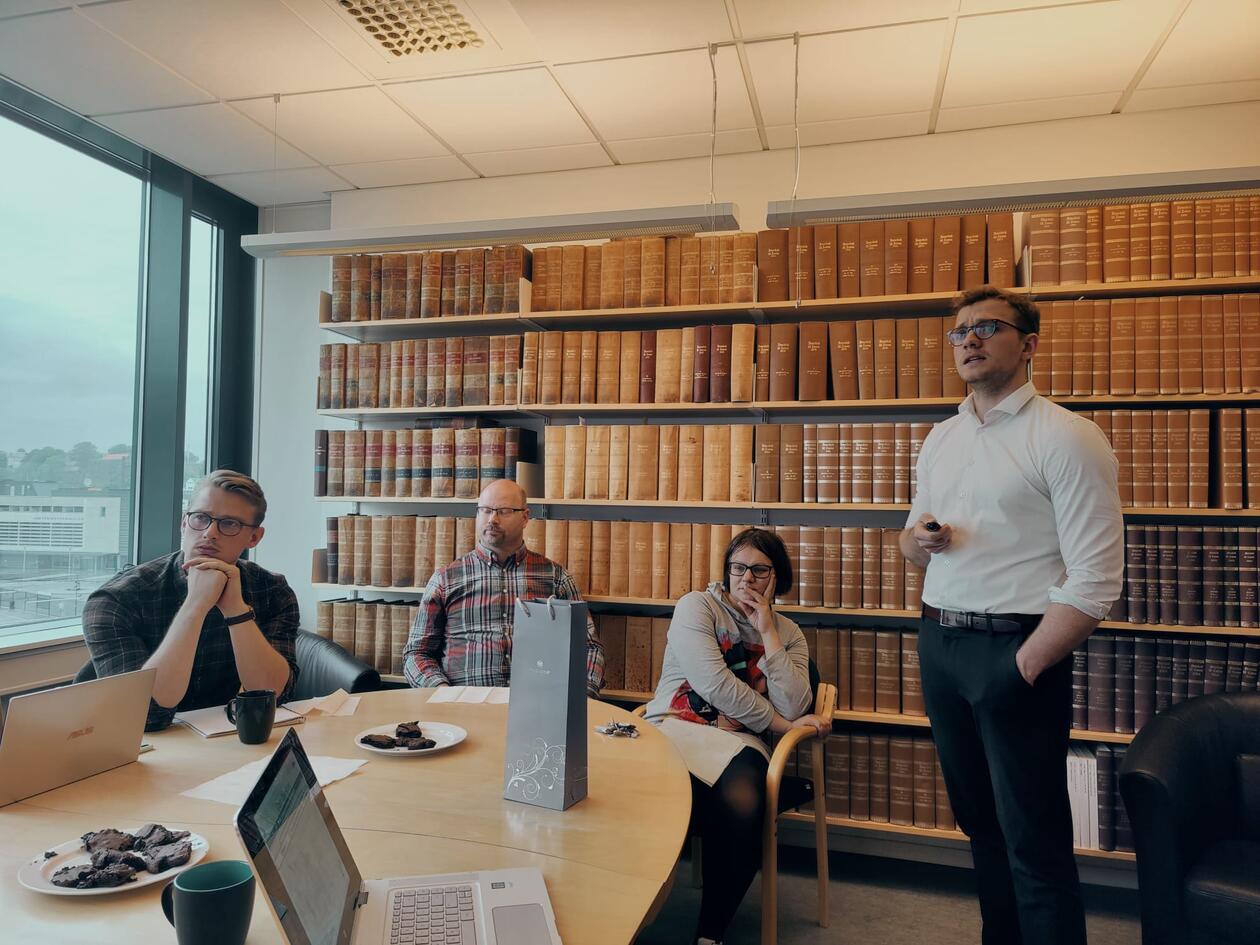The EU's proposal to a Net-Zero and Critical Raw Material Regulations
Seminar with Philipp Wurl L.L.B (Mannheim), law student at the Ruprecht-Karls University of Heidelberg

Main content
On the 21st of September, Philipp Wurl LL.B. (Mannheim), law student at the Ruprecht-Karls University of Heidelberg delved into the newly proposed regulations by the EU-Commission concerning Net-Zero Technologies (NZIA) and Critical Raw Materials (CRMA).
In short, the purpose of the NZIA is to scale up the EU manufacturing of technologies that are crucial to the energy transition. The goal is 40 % intra-EU production within 2030. The CRMA complements the NZIA, by aiming to lower administrative burdens and obligations to increase Member State's exploration and processing of critical materials.
Philipp described how the Commission attempts to combine the ambition to compete in the emerging electrolyzer-hydrogen market and at the same time promoting the decarbonization of the Union. However, a significant hurdle lies in the EU's heavy dependence on imports of (processed) critical materials and technologies, primarily from China. Hence, the Commission aims to revitalize its renewable technology manufacturing sector with the two regulations, focusing on mechanisms that are supposed to support an EU-circular market and an internal value chain.
Philipp presented the key provisions of the NZIA and CRMA, using the electrolyzer production as an example - a crucial technology in achieving the ambitious goal of 17.5 GW in hydrogen output by 2025. The importance of green Hydrogen becomes clear as projects related to so called “Hydrogen Valleys” or “Hydrogen Banks” enjoy special privileges in the NZIA. In the context of CRMA, the streamlining of bureaucratic processes was analyzed, aiming to accelerate the extraction and processing of raw materials essential for manufacturing green technologies and to address geopolitical dependence on external countries.
Philipp concluded that regarding the 'Law-in-books' dimension, both regulations address the decade-long externalization of the entire value chain of renewables and raw materials. When it comes to 'Law-in-Action,' he stressed that the Commission should focus not on overregulating certain fields but on strengthening small and medium-sized businesses through easy-to-apply laws, by for instance unifying the capital markets. A final comparison was drawn to the Inflation Reduction Act, as the US counterpart. In this context, financial investments like an Investment Fund should not be overlooked, ensuring that the Union can compete with the rest of the world.
The research team agreed that the regulations will have a significant impact for the European industry and the EU economy, both internally and in relation to third countries.
As Philipp's internship is ending, we asked him of his experience:
"After having the opportunity to live in Bergen once again for two months, I can say that my time here was amazing. I got to learn so much about the EU/EEA perspective on new trends regarding energy policy, and I had the privilege of meeting so many smart and friendly people. I especially want to thank Prof. Dr. Herrera Anchustegui, who made all of this happen and supported me throughout the whole process. I'm also grateful to the entire research group, which was always ready to help when I needed it and was consistently friendly to me. I hope to see you all again very soon 😊"
We thank Philipp for his contribution to the group during his stay, both academically and socially. Good luck with your studies!
Contact info for Philipp: (2) Philipp Wurl | LinkedIn
The presentation is attached below.
